Leaving Hanoi for Germany during the days when all of Europe is entering the Spring season with brilliant flowers, I enjoy Vietnamese cuisine as if I had been away from home for a long time...
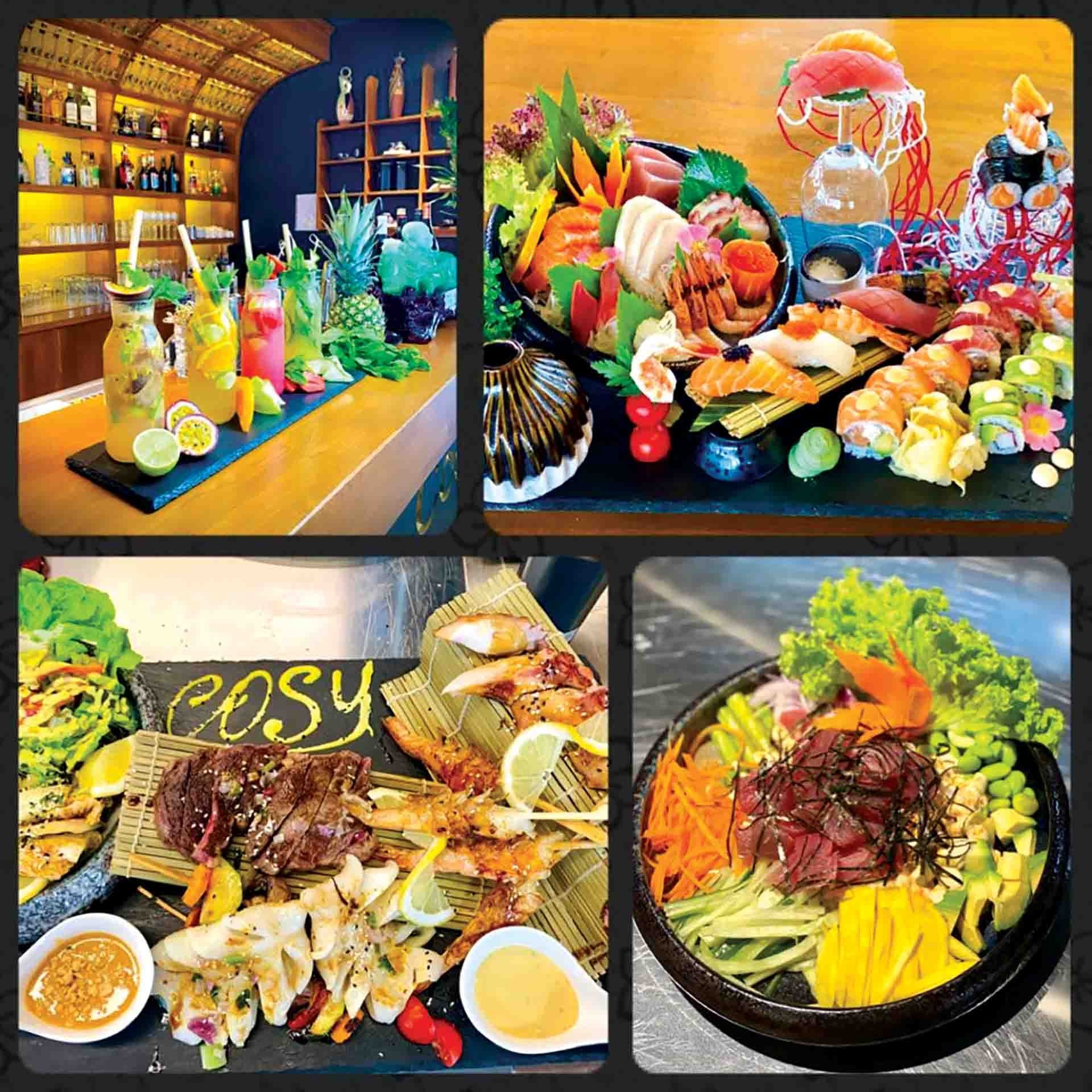 |
| Vietnamese-created dishes at Cosy Restaurant – Fine Asia Cuisine & Sushi Bar in Nurnberg, Germany. (Photo: Cat Phuong) |
If 20-30 years ago, Vietnamese people living abroad missed the taste of their homeland so much, now they can ease that nostalgia when they can easily find Vietnamese restaurants everywhere in Germany.
Pervasive and familiar
As soon as the plane landed in Frankfurt, I had the opportunity to meet and chat with Mr. Kambiz Ghawami, President of the World University Support Organization (WUS). Unexpectedly, over a cup of hot brown coffee, authentically “hand-carried” from Vietnam, our conversation included quite a bit of time devoted to Vietnamese cuisine.
Kambiz Ghawami is a German friend who is very attached and passionate about Vietnamese education. Every year, he has several flights back and forth between the two countries to implement WUS university support projects. He is no stranger to his favorite Vietnamese dishes in Germany.
“In my country, more and more Vietnamese families are living for the second and third generations. If 20 years ago, there were only a few Vietnamese restaurants here, now in small provinces you can find Asian restaurants owned by Vietnamese people. That shows that Vietnamese cuisine in Germany has developed very strongly in recent years,” Mr. Ghawami shared.
Traveling is becoming more and more convenient, many Germans travel to Vietnam and really like the local dishes. Therefore, when they return to Germany, most of them want to enjoy it again and thanks to that, Vietnamese dishes have become popular in Germany. Mr. Ghawami commented: "Germans like Vietnamese food because it is mostly not too fatty, greasy like some Chinese dishes, nor too spicy like some Thai dishes."
In Germany, many families have the habit of eating out and taking their children to Vietnamese restaurants. When the children get used to the taste, they often come to eat and order for their children, and even when they grow up, their taste for Vietnamese food remains the same. Over the past few decades, this is how Vietnamese cuisine has spread and become familiar to generations of local people.
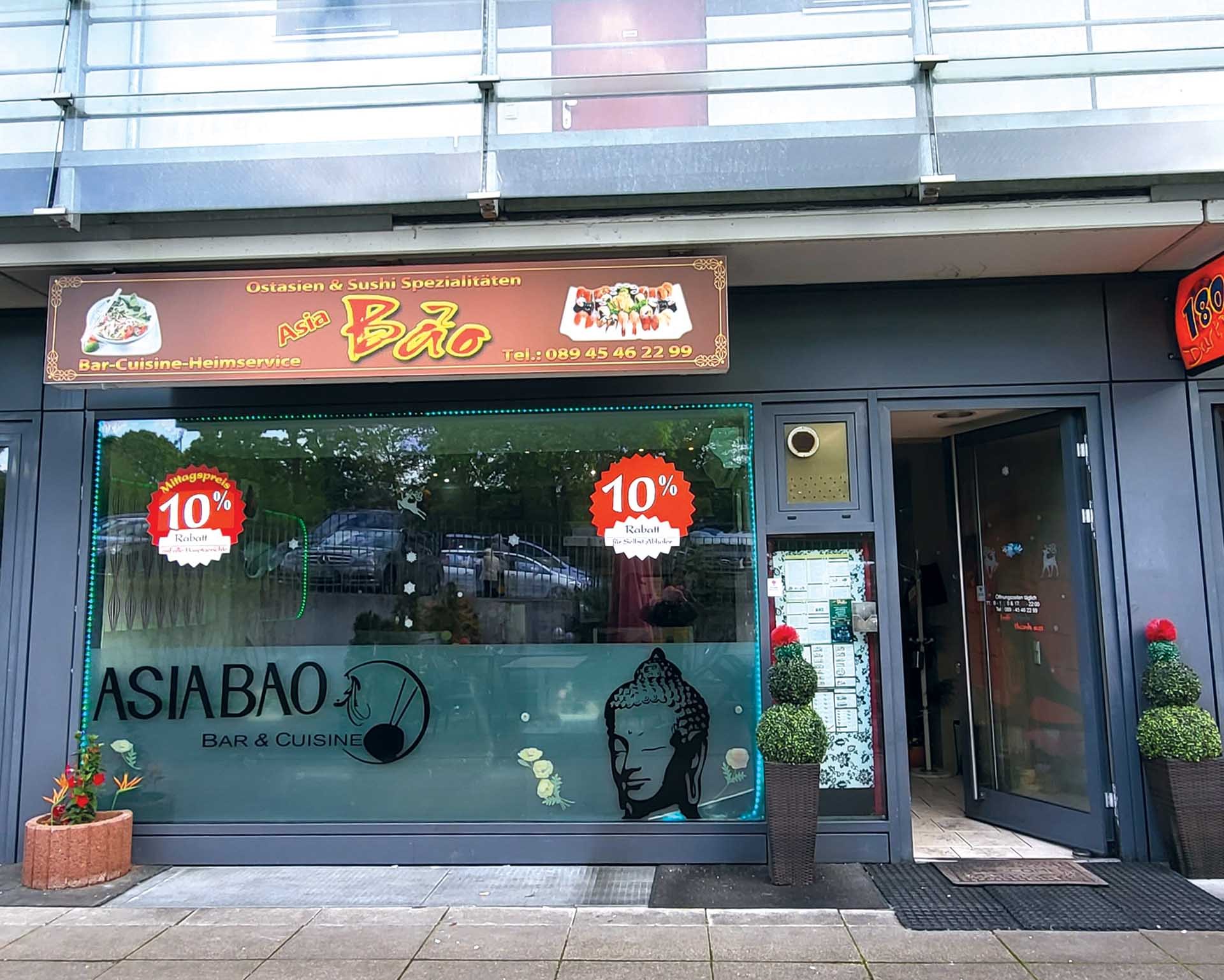 |
| Asia Bao restaurant of overseas Vietnamese businessman Duc Anh Son is located at the foot of a large building. (Photo: Minh Hoa) |
When in Rome, do as the Romans do...
Chef and restaurant owner Trinh Thanh Son, a Vietnamese expatriate living in Germany since 1990, shared: “I have no formal training in cooking, but I have lived here and worked in restaurants for many years. When I was mature enough with the profession, I opened Asia Bao restaurant in Munich.”
He said: “If you want to open a restaurant, you have to take a food safety class. This issue is very strict here, doing wrong will result in heavy fines, repeat offenders will be closed. Therefore, if you open a restaurant, you have to ensure food safety and many other regulations.”
“In Germany, everything you buy or sell must have an invoice. If you import something, you must sell it, almost absolutely, so they can calculate taxes. If you don’t understand, you will be very tired with the customs taxes,” Mr. Son shared.
He recalls that 30 years ago, Germans did not know what Vietnamese cuisine was because at that time there were only Chinese restaurants in Germany. “Now there are Vietnamese restaurants everywhere, small villages have one restaurant, large villages have two or three restaurants, cities have dozens of restaurants… Now, when Germans enter a restaurant, they will ask: “Are you Vietnamese?” before deciding to choose a table and order food. They are so “sophisticated” that when they ask us to deliver pho to their home, they will ask to keep the water and pho noodles separate so that when they eat, they can heat them up and pour them in to eat hot.”
Variations
Leaving Frankfurt and Munich, I arrived in the capital Berlin in cool, chilly weather. Stopping by Chikenbuzz for breakfast, I was extremely impressed with the char siu chicken and especially the salad with coconut milk, a typical dish of Vietnam. Mr. Hoang Trong, the owner, said: “This is the third restaurant that my friends and I opened, each restaurant has about 20 employees. We serve Asian chicken dishes and European food. We went through a difficult period of Covid-19, but fortunately, regular customers still call us to deliver food to their homes. It's great when someone calls and asks: is Trong there? If so, cook me a bowl of pho, I'll come over later to eat."
Chef Nguyen Huy Nhu, who has been working in Germany since 1990, has worked as an assistant at Chinese, Japanese and Thai restaurants. Each time he changes jobs, he attends a new “practice course”. He said: “Vietnamese restaurants account for 70% of the Asian restaurant market share in Berlin today. Vietnamese people know how to create dishes to suit local tastes. For example, Chinese people like to use MSG, while Vietnamese people use sugar. Fish sauce for bun cha must be mixed up to a dozen liters every day because Germans eat a lot of fish sauce. A German friend came to eat and loved the taste of the fish sauce, but hated the smell of fish sauce. So I thought of a way to mix the fish sauce without the smell of fish sauce.”
In Germany, many dipping sauces have been created by restaurant owners to highlight their restaurants. For example, the combination of German Mayonnaise, a little Vietnamese spices and mixed in the Vietnamese way has created the delicious and spicy Hai Dang dipping sauce (Hai Dang is the name of the restaurant) that many Germans love.
In addition to traditional dishes such as vermicelli and pho, Mr. Nguyen Nhu also has sticky rice with beans, peanuts, corn and sticky rice sold as a set meal, eaten with ham, sausage, and tofu as a fake vegetarian dish that Germans really like.
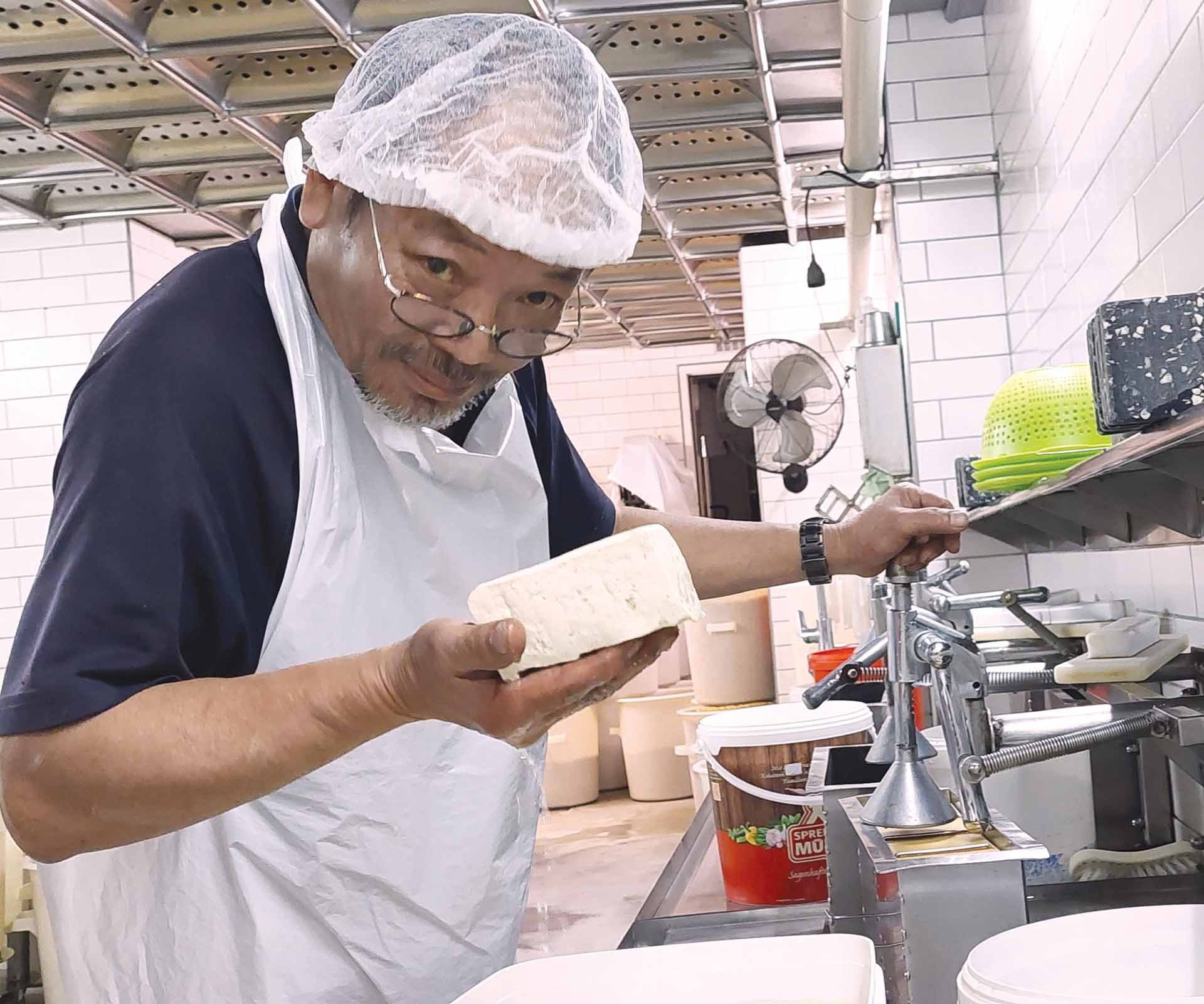 |
| Vietnamese-German businessman Nguyen Quoc Khanh - owner of a tofu factory in Berlin. (Photo: Minh Hoa) |
When it comes to tofu, all Vietnamese people in Berlin know Mr. Quoc Khanh - who came to Germany to start a business making tofu in 1999 and is now supplying tofu to almost all of Eastern Germany. Recalling the days when he first came to Germany to start a business, not all Germans liked to eat tofu, so he encountered many difficulties. Gradually, Germans learned to eat tofu and loved it. Vegetarian restaurants sprung up like mushrooms, and from then on, his tofu factory could not keep up. There were days when the factory processed tons of beans, producing about 3-4 tons of finished tofu. A dream number for even individual tofu factories in Vietnam, not to mention in Germany.
When talking about delicious and beautiful Asian cuisine in Nuremberg, people mention the restaurant chain Cosy - Fine Asia Cuisine & Sushi Bar and the restaurant owners Vu Tien Thanh and Nguyen Nam Son.
They shared: “The restaurant has Vietnamese and Asian dishes; from Sushi to hot dishes according to the tastes of today's diners. All are prepared with Asian ingredients according to the restaurant's own recipe with 30 years of experience in the profession. For example, the Sommerrolle dish - Vietnamese spring rolls, the combination dish ChefMix Nr 305 is loved by many customers”.
Time flies, the trip and work trip in Germany has come to an end in the blink of an eye, I still regret not having enjoyed all the new things in Vietnamese cuisine prepared by overseas Vietnamese chefs here. There will be strict people who think that changing cuisine means losing the traditional flavor. But perhaps, everything in life will move to adapt - Vietnamese cuisine abroad is no exception. To me, this is really very interesting.
Source





![[Photo] Prime Minister Pham Minh Chinh receives Swedish Minister of International Development Cooperation and Foreign Trade](https://vphoto.vietnam.vn/thumb/1200x675/vietnam/resource/IMAGE/2025/5/12/ae50d0bb57584fd1bbe1cd77d9ad6d97)
![[Photo] Prime Minister Pham Minh Chinh works with the Standing Committee of Thai Binh Provincial Party Committee](https://vphoto.vietnam.vn/thumb/1200x675/vietnam/resource/IMAGE/2025/5/12/f514ab990c544e05a446f77bba59c7d1)
![[Photo] Prime Minister Pham Minh Chinh starts construction of vital highway through Thai Binh and Nam Dinh](https://vphoto.vietnam.vn/thumb/1200x675/vietnam/resource/IMAGE/2025/5/12/52d98584ccea4c8dbf7c7f7484433af5)


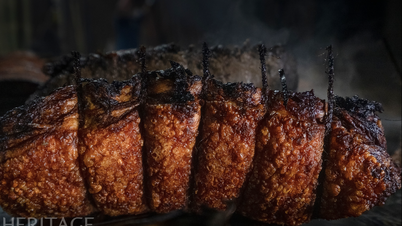

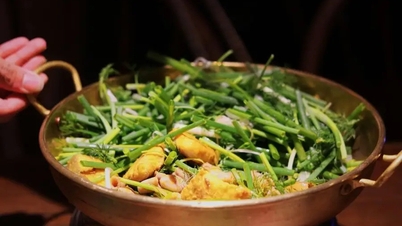

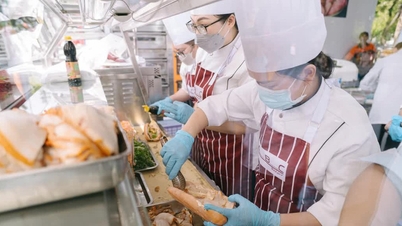

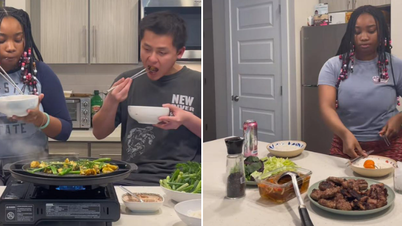
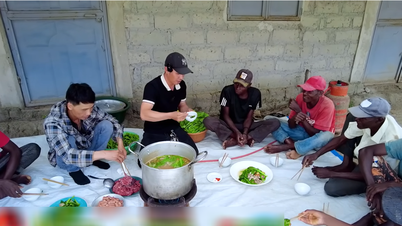

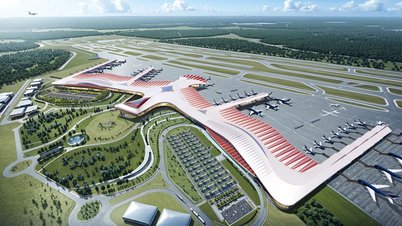
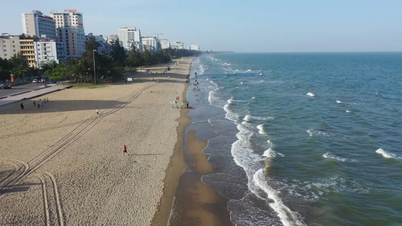









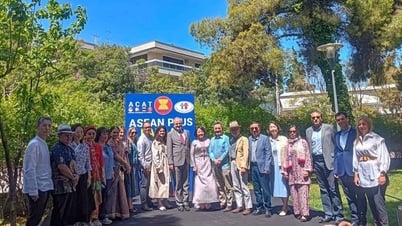






















































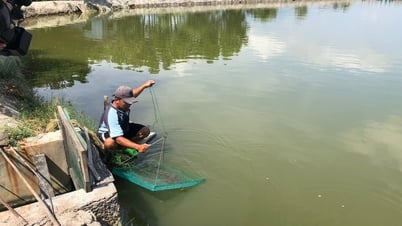


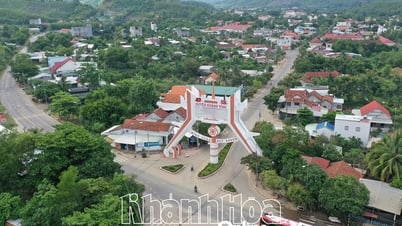











Comment (0)